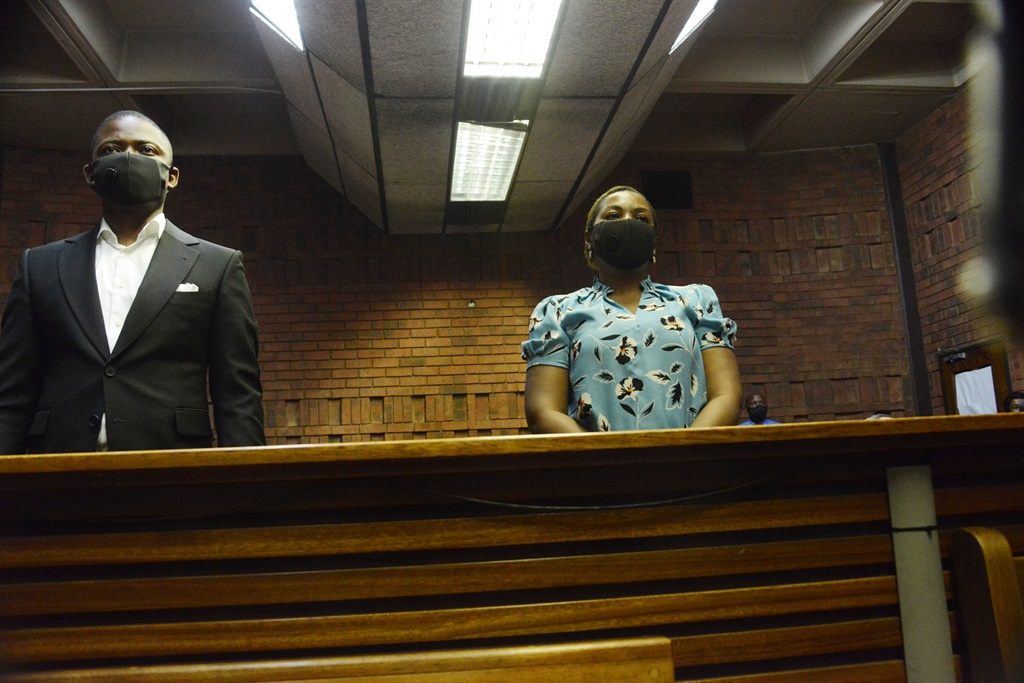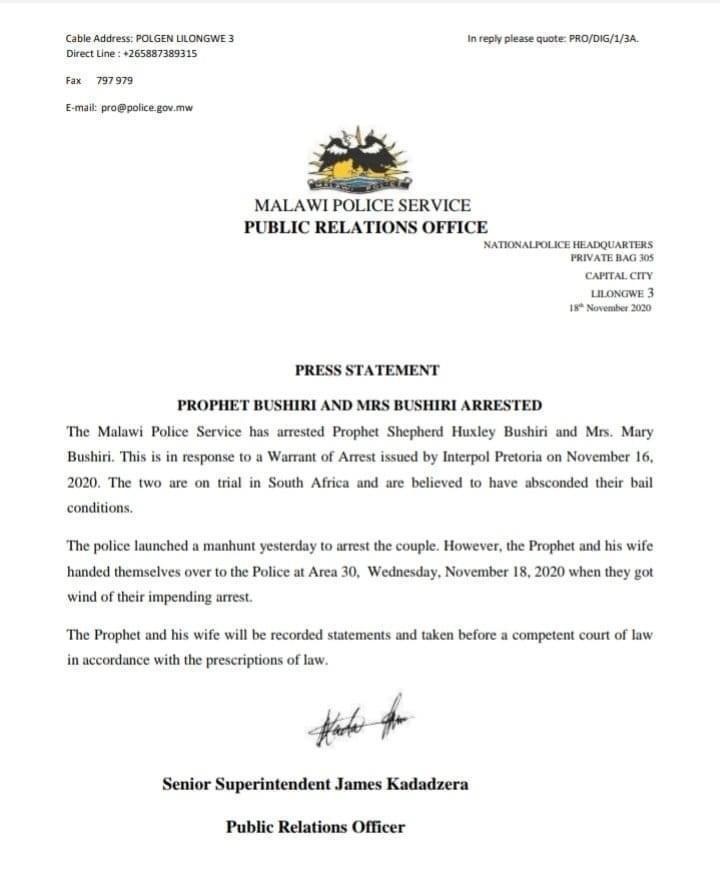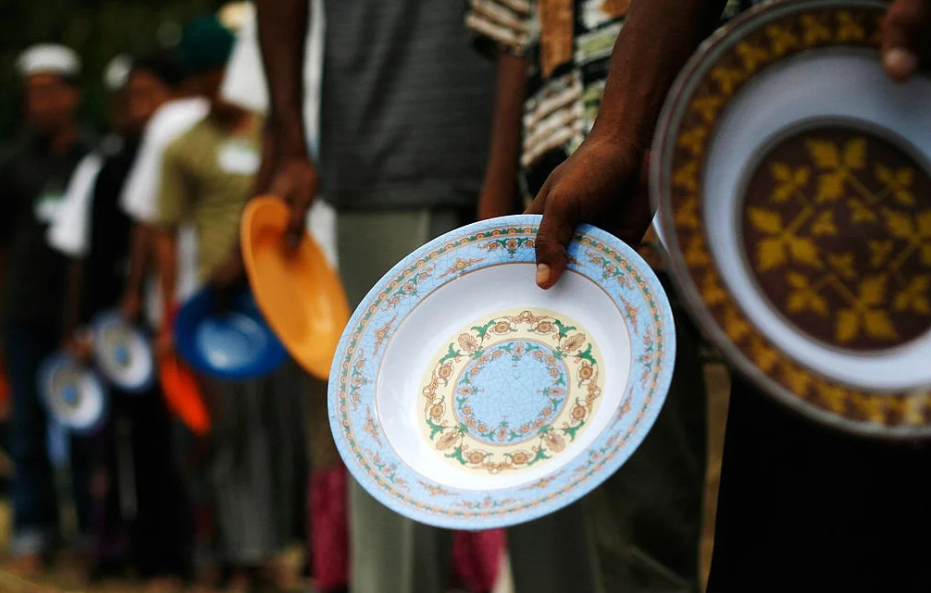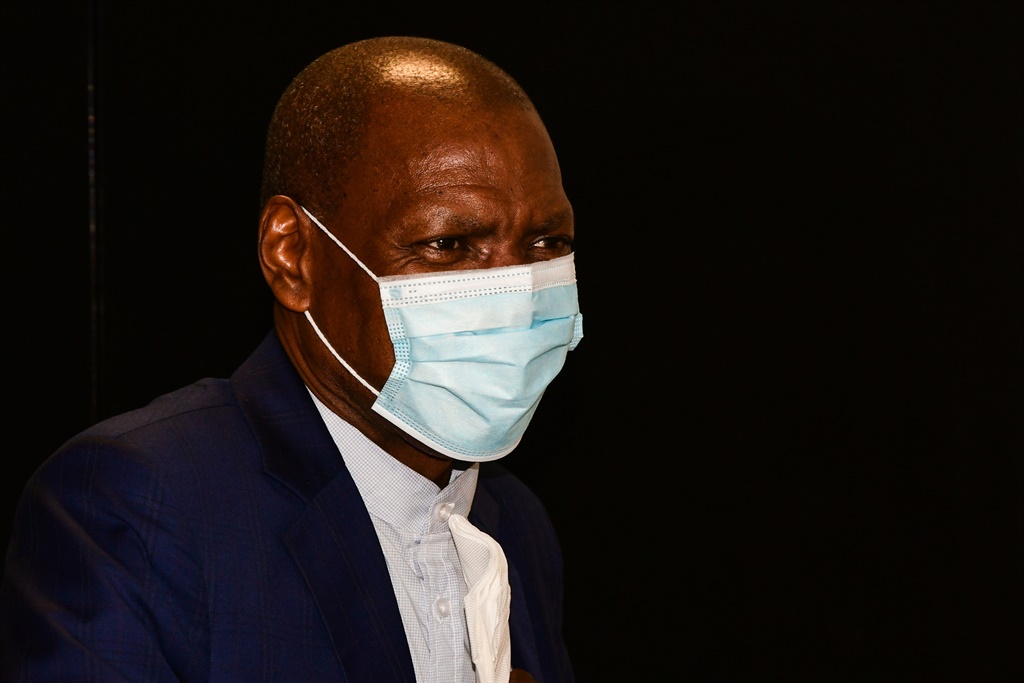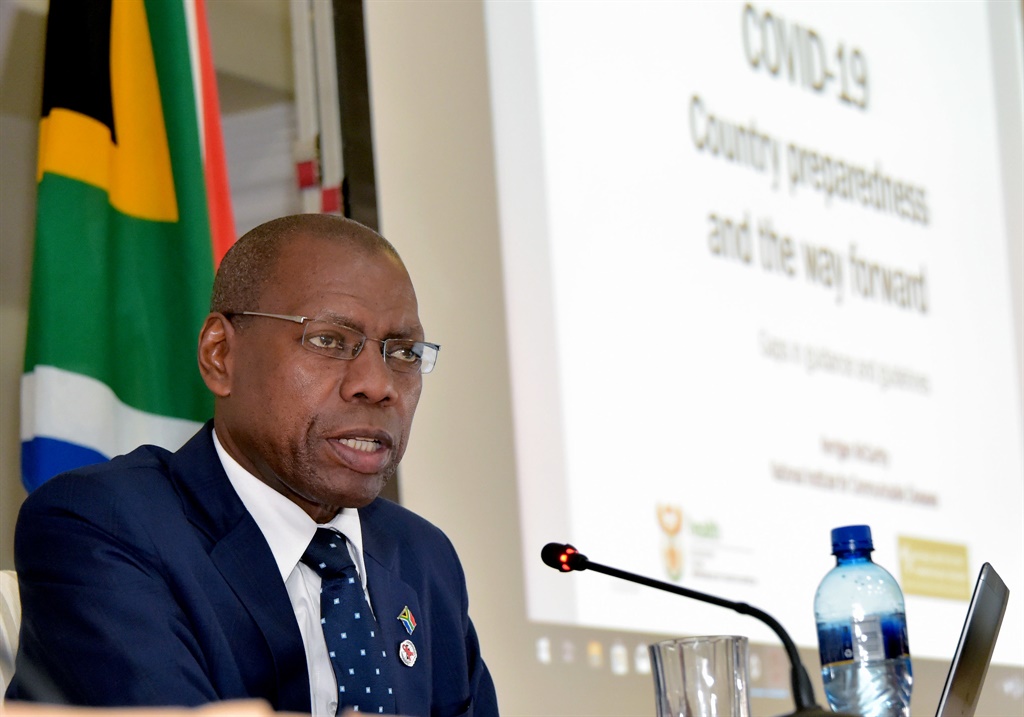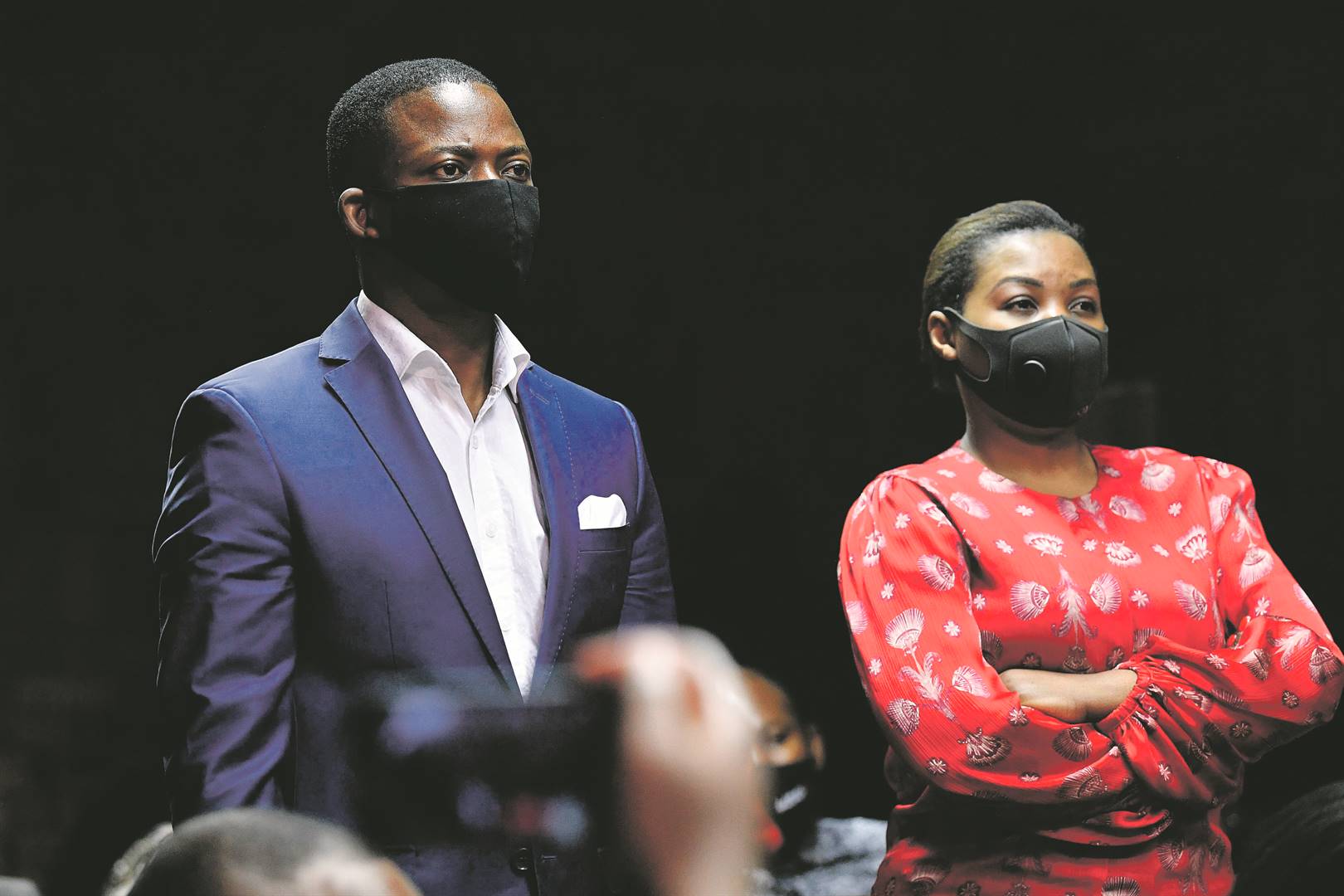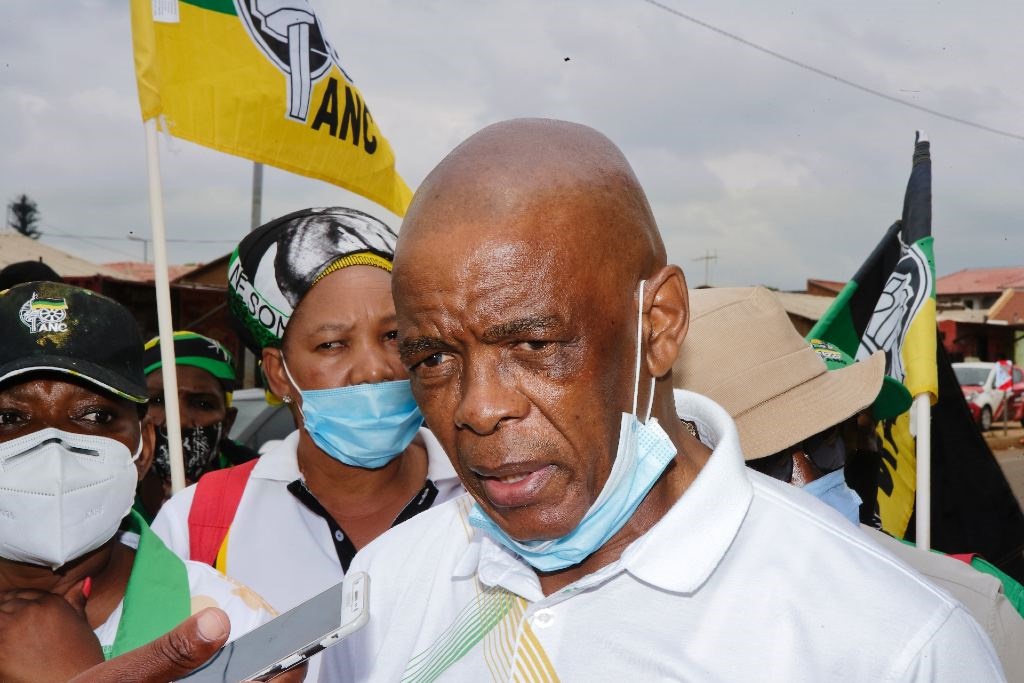
America’s president-elect, Joe Biden, has a herculean task ahead of him: He will have to repair the harm done by his predecessor’s perceived political interference with the registration of Covid-19 vaccines. That’s easier said than done. How well he confronts this battle will influence how willing his compatriots — and also some South Africans — are to take the shots. Here’s why.
On Thursday last week — two days after the drug companies Pfizer and BioNTech announced the first results of their COVID vaccine — the American governmentsigned an agreement with local pharmacies to distribute free coronavirus vaccines once they’re approved and become available to the public. Even before that, large urban hospitals in the country started to scramble to buy the costly ultra-cold freezers required to store what is likely to be the world’s first Covid vaccine, and one that needs to be kept at below freezing temperatures.
The rush isn’t unrealistic.
Early results have shown that the vaccine has 90% efficacy in preventing Covid-19, putting it in the same category as some of the most potent inoculations, such as the measles shot. And on Monday Moderna announced their Covid vaccine’s initial results revealed an even higher efficacy rate than Pfizer/BioNTech’s: 94.5%.
Pfizer/BioNTech are likely to apply for emergency use authorisation (EUA) with the country’s medicine regulator, the Food and Drug Administration (FDA). EUA is a fast-tracked registration process that, if successful, will allow them to market the vaccine during disaster phases of the pandemic as early as next week. Moderna on Monday said they’ll apply for EUA “in the coming weeks”. The company will also submit applications for authorizations to global regulatory agencies.
The US-based Pfizer will start to distribute jabs in America as soon as the FDA has approved their vaccine because production already started months ago, long before the first efficacy results were released. And Pfizer and the federal government clinched a deal way in advance — in July — for nationwide delivery of 100-million jabs before the end of December.
But the announcements, manufacturing and signing of contracts happened against the complicated background of a nearly paralysed Washington, DC, where the focus was almost entirely on President Donald Trump and Republican leaders’ legal disputes regarding the country’s recent election results, with all indications being that Trump lost.
And although the country’s new president elect, Joe Biden, has demanded that the Covid pandemic takes priority, and his first move was to unveil a pandemic task force, the consequences of the Trump administration’s perceived political interference with the licensing of vaccines, which surveys show has impacted on Americans’ trust in the safety and efficacy of COVID vaccines, won’t be erased before the new vaccine is registered.
How perceptions of Trump’s political interference have influenced Americans’ willingness to take Covid vaccines
The Trump campaign, which viewed Covid vaccines and Operation Warp Speed — the Republican administration’s vaccine acceleration project — as the bull’s eye of its pandemic response and rhetoric, repeatedly contradicted public health experts by falsely claiming a vaccine could be available before this month’s elections, raising fears that the president would interfere with approval processes.
Between February and September, there were at least 47 instances of “political interference” in the country’s Covid response during which state scientists had been sidelined or their recommendations altered, a coronavirus crisis sub-committee of the US House of Representatives showedin a report released in October. Several of these cases involved resistance to “efforts to ensure the safe development of a vaccine”.
And while the nine drug companies that are frontrunners in developing Covid vaccinessigned a pledge in September to assure the world that they would not submit any vaccine data for approval by the US government’s regulator, the Food and Drug Administration (FDA), unless the safety and efficacy of a vaccine had been proven in large scale clinical trials, considerable damage has already been done.
For one, Americans’ confidence in the FDA’s ability to make decisions based on science only seems to have waned. In September, many (62%) were worried that political pressure from the Trump administration would lead the FDA to rush to approve a coronavirus vaccine without making sure of its safety and efficacy, a poll by the US research organisation, the Kaiser Family Foundation, showed. The survey was conducted among a nationally representative digit dial telephone sample of about 1 200 adults.
And when people lose faith in the processes designed to ensure that vaccines are safe and work the way they’re supposed to, research shows, they’re less likely to take them.
An October poll by the Boston Globe’s health news website, Stat news, found that only 58% of the US public would be willing to be inoculated with a Covid vaccine immediately, down from 69% in August. The October poll, which had 2 050 online participants, was weighted to ensure the sample was representative of the general US population.
People refusing to take vaccines is as big a problem as climate change and HIV
And vaccine hesitancy — the delay in acceptance or refusal of vaccines despite availability of vaccination services, according to the World Health Organisation (WHO) — is by no means restricted to America. The WHO has declared it to be one of the top 10 global health threats, along with other major risks such as climate change, HIV and antimicrobial resistance.
Because so many governments will depend on international regulatory bodies such as the FDA’s assessments of manufacturers’ data to process Covid vaccine approvals in their own countries, the repercussions of the Trump administration’s public defiance of vaccine science and insinuations of rushed approvals, also affect other nations.
In an October survey, which the market research company Ipsos conducted among about 19 000 people on behalf of the World Economic Forum, 73% of participants in 27 countries said they would take a Covid vaccine — that is four percentage points less than three months earlier. And only 22% said they would take the vaccine immediately.
In South Africa, the poll showed, the proportion of people who would be prepared to get a vaccine is at 64%, almost 10% lower than the international average.
And although the causes of vaccine hesitancy are complex and can’t be laid solely at the door of Donald Trump, research has shown us that the way in which policymakers portray — or misuse — scientific evidence, hugely influences the public’s take-up of evidence-based health interventions.
In nearly equal proportions, those participants who did not intend getting inoculated in the Ipsos survey said they were worried about the safety of vaccines, particularly the side-effects (34%, globally) and that vaccines were moving through clinical trials too fast (33%, globally).
According to Arnaud Berneart, the head of Shaping the Future of Health and Healthcare at the World Economic Forum, the poll’s results are “significant enough to compromise the effectiveness of a Covid-19 vaccine to manage the disease and to see an end to the cycle of new lockdowns and restrictions”.
Why the Pfizer vaccine might not be right for South Africa
The morning after Pfizer and BioNTech had announced their vaccine results, the companies’ market shares soared to some of their highest prices ever.
The potential 90% efficacy of two shots of the vaccine given three weeks apart, had the world gasping — many experts had dared not hope for anything beyond 70%.
And although these results could change as the trial continues and the data of more study participants are analysed, and we don’t yet know for how long the immunity that the vaccine stimulates will last, or whether it will prevent people from transmitting the virus (as opposed to only preventing them from falling ill with it), the data so far has brought considerable hope that vaccines will help to control the pandemic.
In accordance with FDA guidelines, Pfizer/BioNTech, as well as Moderna, will file for emergency use when half of the participants in their study have been observed for safety issues for at least two months after they had been given their second shot of the vaccine.
For South Africa, however, the Pfizer vaccine is likely to be out of reach because of its stringent storage requirements. It needs to be stored at minus 70 degrees Celsius and according to the chair of the country’s ministerial advisory committee on vaccine development, Barry Schoub, the country doesn’t have the large scale capacity to store or transport vaccines at such low temperatures.
But Moderna released results on Monday that their vaccine can remain stable for 30 days if stored at between two and eight degrees Celsius – the temperature of a standard home or medical refrigerator. If the vaccine needs to be stored for longer, though, it will need to be kept at minus 20 degrees Celsius, which would be a challdenge for South Africa, because it will require transport and cold chain systems South Africa does not have access to on a large scale.
How will vaccine authorisation processes influence South Africans’ confidence in Covid vaccines?
The kind of approval — emergency use authorisation (EUA) — that Pfizer/BioNTech and Moderna will apply for, and that most other vaccine developers whose vaccines turn out to be effective would likely seek as well, does however hold implications for South Africa.
The bar for emergency use authorisations is lower than for full approval of products and they’re also quicker to get. US law allows for an EUA to be issued if “the product may be effective in diagnosing, treating or preventing” a condition and the known benefits of the product outweigh the known risks. Instead, a full approval license requires a manufacturer todemonstrate that a product is safe and effective, that the product is pure and that it can be consistently made, along with a string of other requirements.
The snag is that while a full approval allows a manufacturer’s product to remain on the market forever, it can take between six and 10 months for a license to be granted. Approval for an EUA limits companies to sell a vaccine during a declared emergency process only, but the authorisation process is much quicker and requires less data.
South Africa’s own regulatory body, the South African Health Products Regulatory Authority (Sahpra), would normally review evidence from vaccine trials to make a decision about whether a vaccine works as intended in order to register it in South Africa. But in the case of Covid vaccines, at least initially, Sahpra would need to rely on the EUA-approved data presented to regulatory bodies of countries where vaccines got approved first (in other words, from the countries in which they were developed and regions with large, internationally recognised regulatory bodies). Sahpra would need to conduct a type of study called a rapid review — examining the data systematically, but in the fastest, reliable way possible — to make the product available in South Africa.
The South African regulator would therefore, to a large extent, be relying on evaluating the decisions of other regulatory bodies — the public’s acceptance of the country’s decisions about the safety and efficacy of vaccines will therefore not only depend on their trust in Saphra, but also on their confidence in the regulatory bodies whose guidance South Africa is using, says Andy Gray, a senior pharmacy lecturer at the University of KwaZulu-Natal. “Trust in those decisions will be crucial. If there is a perception that one or more of the major regulators has taken a politically-inspired decision, in the absence of sufficient evidence of efficacy and safety, that will make reliance on such a decision very difficult.”
The best way to deal with this, Gray says, would be for Sahpra to compare the decisions of various large regulators, such as the FDA and European Medicines Agency, and to also look at assessments of the World Health Organisation’s prequalification programme, that would have to evaluate and approve vaccines bought with donor money.
How responsibly the world’s large regulators and international agencies such as the WHO deal with the fast-tracked registration of Covid vaccines, will therefore be as important for South Africa as the countries the bodies represent.
COVAX is the world’s answer to cheaper and equitably distributed Covid vaccines. But it could complicate procurement processes.
Procurement and authorisation decisions will get even more complicated when South Africa orders vaccines through theprocurement mechanism COVAX, as opposed to buying jabs directly from manufacturing drug companies.
COVAX, for which South Africa has confirmed its intent to participate, but not yet signed a commitment or paid any deposits, will negotiate discounted price deals for the nine vaccine candidates that are farthest along the development pathway and for which the manufacturers are willing to commit volumes to COVAX. But only two of them, Pfizer/BioNTech and Moderna, have released efficacy data; we simply don’t know yet whether the rest of the candidates will turn out to be effective — although AstraZeneca have hinted they may release interim results December or January.
COVAX will be able to procure vaccines from manufacturers without the companies having obtained full authorisation for the products, according to its terms and conditions for self-financing participants (if South Africa joins COVAX it would fall into the self-financing category). In order to expedite the availability of vaccines, “certain vaccines may be made available if they gain WHO emergency use listing or emergency use authorisation, prior to licensure and [WHO] prequalification”, the conditions state, as long as countries that receive the vaccines “acknowledge that there is no guarantee for these doses to get [full] licensure or [WHO] prequalification”. Because manufacturers will initially be unable to produce enough vaccines for everyone, COVAX only allows participating countries to buy vaccines via the mechanism for 20% of their population. But because COVAX relies on pooled resources, “countries are being asked to pay deposits even before vaccine trials are completed and before any of the vaccines in the basket has been approved by any regulator”, explains Gray.
In South Africa’s case, that means the health department would need to procure unregistered vaccines by using a process kno wn as“bulk section 21 approval”, that can usually only be used if a product has already been registered in another country — and each vaccine would need to be approved separately.
“I would not expect section 21 approval for all nine candidates at this stage. And it is not needed to allow the necessary funds to be committed to COVAX,” Gray says. “Prior Section 21 approval is not the basis for a subsequent registration decision, which relies on evidence of quality, safety and efficacy.”
Why the balance between speed and caution, and how it’s communicated, will be crucial
How transparent the FDA — and Joe Biden — is about authorisation decisions of Covid vaccines will be hugely important as they become available.
Biden’s and his vice-president-elect Kamala Harris’s actions could influence the international community’s take up of vaccines.
But the world is, of course, much bigger than the United States.
Ultimately, Gray says, the US’s actions will be part of “a global effort, with a lot of detail in the public domain, deliberately setting out to maximise transparency and build (or rebuild) public trust”.
For South Africa, the balance between speed, caution and transparency that other international regulators apply to vaccine registrations will therefore be as important as that of the FDA.
And so would the levels of openness of pharmaceutical companies that produce vaccines.
According to the health department’s director of affordable medicine, Khadija Jamaloodien, South Africa is considering procuring vaccines through both bilateral deals with manufacturers and potential participation in COVAX. “We’ve had high-level discussions with some of the multinationals, but until all the relevant information required to make a decision is available, such as the clinical efficacy and safety data of individual vaccines, cold chain requirements for logistics, etc, contractual agreements cannot be entered into.”
And in fairness, three major COVID vaccine developers — AstraZeneca, Pfizer and Moderna — have started to address the issue of transparency by publishing their trial protocols that show how the effectiveness of their vaccines will be evaluated; details that drug companies rarely release because they say it reveals crucial information to their competitors.
That’s a start.
But we need more radical transparency. That should be kickstarted by Covid-19.
– This story was produced by the Bhekisisa Centre for Health Journalism. Sign up for the newsletter.


